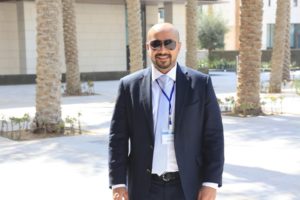l accepted undergoing my viva virtually although I was -and I still- in Exeter and all my psychological preparation for it was on a face-to-face basis. But l know the material and I am confident of my ability to defend my thesis.
2 days before the date agreed, the administration team told me of the technical requirements for this virtual endeavour as l would need to ensure that they are all available in my apartment.
My virtual viva took place on Friday the 27th March at 1pm. 3 hours before, my internal examiner emailed me a link (an invitation) to join them via Microsoft Teams that I had already installed. I joined them easily on time, and found 3 participants: internal examiner, external examiner, and non-examining chair. My internal examiner introduced me kindly and shortly to them. After that, the non-examining chair decided politely to hide and mute his window in order to let my examiners start the formal examination. I might be fortunate because both of my examiners were lovely and polite with me during the whole discussion.
At 2:40pm, my internal examiner asked me kindly to end the videoconference and wait shortly for another invitation to announce my result. I joined them at 2:55pm again. My mother and I were listening carefully. “Congratulations Dr. Ahmad! I am delighted to announce that you passed your viva successfully” My external examiner said.
Perhaps the most valuable advantage of doing my viva virtually is getting rid of the extra stress that mostly occurs to PhD students during the normal pattern of vivas. I remember very well how I was extremely relaxed on my own desk during my virtual viva.
Just imagine with me the following scene: you’re in your own apartment, your thesis and a cup of tea are on your desk, wearing comfortable clothes, and surrounded by your necessary sources. I personally consider such comfortable atmosphere the catalyst for a better focus, faster answers, and a satisfactory performance.
Further benefits -beside those I exemplified above- might be also observed by anyone else had the same experience. However, as I said: “It’s my own experience!” and I hope you all folks have even better experiences.
My advice before conducting the virtual viva:
– Read your thesis entirely (1 day before the viva).
– Sleep well.
– Check your internet speed.
– Charge your laptop.
– Practice breathing exercises for stress before joining the videoconference. It’s really fruitful.
This coronavirus situation has taken us all by surprise and its ramifications have disrupted the lives of all unfortunately. I find myself torn between checking on my family and loved ones back home and ensuring that I and my colleagues here are well. But l must admit that it is stressful.
That being said, it is a situation that has been imposed on all of us and we just have to make the best out of what we have. Therefore, I support you guys to stay safe in this challenging time. In the same time, I invite you to be open to the possibility of conducting the viva virtually via videoconferencing.
Written by: Ahmad Alfaraj

